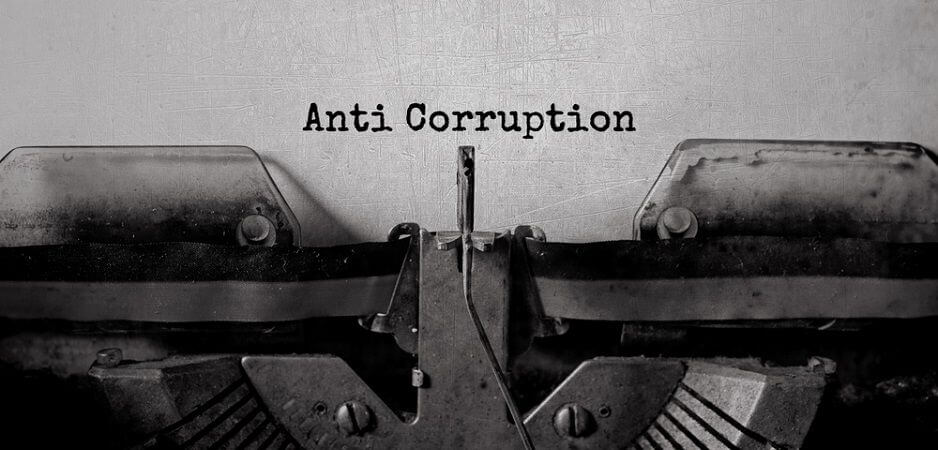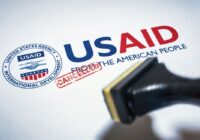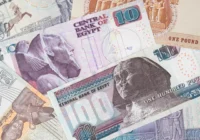We know what corruption is. Now let’s explore anti-corruption from a Saudi point of view.
Today’s 3D Definition: Anti-Corruption
Saudi Arabia appears to be changing fast, at least in some ways. The latest is an anti-corruption purge. What is new of course is not the purge — a common occurrence in authoritarian regimes — but the fact that it focuses on corruption. After the Daily Devil’s Dictionary definition of corruption in connection with collusion, some readers were left wondering about the meaning of anti-corruption.
Here is its 3D definition:
Anti-corruption, adj:
In political theory, anti-corruption describes a law or an action intended to counter or punish acts of self-dealing, where political decisions result in a financial advantage for a particular person implicated in the exercise of power. In practice, as politics always appears to be associated with financial advantage for people with power, anti-corruption describes the means the powerful have of accusing rivals with an insufficient influence on the ruling class or the judicial system of engaging in actions common to the entire political class.
Contextual note
In an article on the Saudi initiative, The New York Times succinctly defines corruption as “private profit at the public expense.” It cites Robert Jordan, former US ambassador to Saudi Arabia, who commented that Crown Prince Mohammed bin Salman’s anti-corruption committee “can basically detain anyone for anything they choose to call corruption,” while the article indicates that the practice “may appear to be selective prosecution,” sparing conforming members of the royal family. In the same article an independent researcher, Katherine Dixon, sums it up: “Using state resources for your own ends is still O.K. if you are part of the right faction or clique.”
Historical note
In another New York Times article, we discover fascinating details on how the super-wealthy use tax havens to shield their earnings from the evil of taxation, which would unjustly oblige them to share a small portion of their gains with the society that provided the means, the environment and the infrastructure in which they made those gains. Gabriel Zucman, an economist, explains that “the wealthy use their power that accompanies their money to exert political influence, reduce taxes and regulation — and hire experts to keep their money safe.”
The Saudis manage to do this at home, where they have political control. The majority of wealthy Americans and Europeans choose to do this in overseas tax havens, where they are content to “influence” politics with their money rather than control it.
*[In the age of Oscar Wilde and Mark Twain, another American wit, the journalist Ambrose Bierce, produced a series of satirical definitions of commonly used terms, throwing light on their hidden meanings in real discourse. Bierce eventually collected and published them as a book, The Devil’s Dictionary, in 1911. We have shamelessly appropriated his title in the interest of continuing his wholesome pedagogical effort to enlighten generations of readers of the news.]
The views expressed in this article are the author’s own and do not necessarily reflect Fair Observer’s editorial policy.
Photo Credit: Mohd KhairilX / Shutterstock.com
Support Fair Observer
We rely on your support for our independence, diversity and quality.
For more than 10 years, Fair Observer has been free, fair and independent. No billionaire owns us, no advertisers control us. We are a reader-supported nonprofit. Unlike many other publications, we keep our content free for readers regardless of where they live or whether they can afford to pay. We have no paywalls and no ads.
In the post-truth era of fake news, echo chambers and filter bubbles, we publish a plurality of perspectives from around the world. Anyone can publish with us, but everyone goes through a rigorous editorial process. So, you get fact-checked, well-reasoned content instead of noise.
We publish 2,500+ voices from 90+ countries. We also conduct education and training programs
on subjects ranging from digital media and journalism to writing and critical thinking. This
doesn’t come cheap. Servers, editors, trainers and web developers cost
money.
Please consider supporting us on a regular basis as a recurring donor or a
sustaining member.
Will you support FO’s journalism?
We rely on your support for our independence, diversity and quality.






